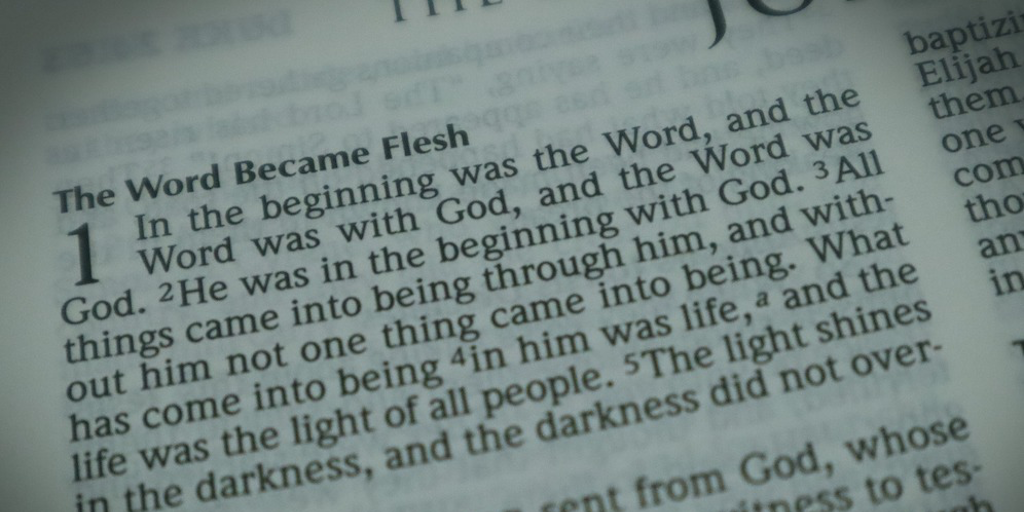John 1
John 1:1-5 is a powerful and well-known passage from the Bible that speaks to the divine nature of Jesus Christ. This passage is often quoted as evidence for the belief in the Trinity, which holds that God exists as three persons: the Father, the Son (Jesus), and the Holy Spirit. Let’s take a closer look at this passage and its significance.
In the original Greek text of John 1:1, the first few words are “en arche ēn ho logos,” which is typically translated as “In the beginning was the Word.” The Greek word “logos” can be translated as “word,” “reason,” or “logic,” among other meanings. In this context, “logos” refers to the divine reason or wisdom of God that has been present since the beginning of time.
The next phrase in John 1:1 is “kai ho logos ēn pros ton theon,” which is translated as “and the Word was with God.” This phrase indicates that the divine wisdom, represented by the Word, existed in unity with God from the beginning.
Finally, John 1:1 concludes with the phrase “kai theos ēn ho logos,” which is often translated as “and the Word was God.” This phrase has been the subject of much debate and interpretation, as it suggests that the divine wisdom, or Logos, is equivalent to God in essence.
One possible way to understand this phrase is through the use of the definite article “ho” (meaning “the” in English) in front of “theos” (meaning “God”). The use of the definite article with “theos” indicates that the Word (Logos) shares the same essence as God, but is not the same person as God the Father. This distinction helps to support the doctrine of the Trinity, which holds that the Father, Son, and Holy Spirit are distinct persons of the one Godhead.
Moving on to John 1:2, the text states that “He was with God in the beginning.” This reinforces the idea of the eternal presence of the Logos, which existed in unity with God from the very beginning of time.
John 1:3 then states that “Through him all things were made; without him nothing was made that has been made.” This emphasizes the creative power of the Logos, which was the means by which all things in the universe were brought into existence. This statement also suggests that the Logos is not a created being, but rather an eternal and divine aspect of God.
In John 1:4, the text states that “In him was life, and that life was the light of all mankind.” This statement connects the Logos with the concept of life itself, and suggests that the Logos is the source of all life in the universe. The reference to “light” also suggests that the Logos is a source of spiritual enlightenment and illumination for all people.
Finally, John 1:5 states that “The light shines in the darkness, and the darkness has not overcome it.” This powerful statement emphasizes the triumph of light over darkness, and suggests that the divine wisdom represented by the Logos is a source of hope and strength even in the darkest times.
In conclusion, John 1:1-5 is a powerful and meaningful passage that highlights the divine nature of Jesus Christ and the eternal presence of the Logos, or divine wisdom, in the universe. The underlying Greek text and translational nuances provide additional depth and meaning to this passage, helping to shed light on the complex and profound nature of the divine.

